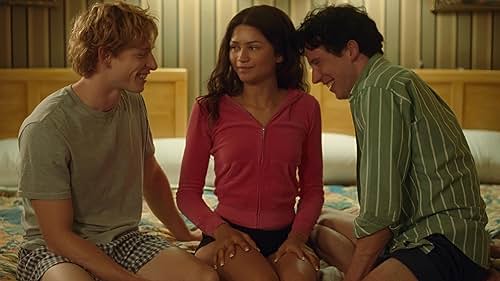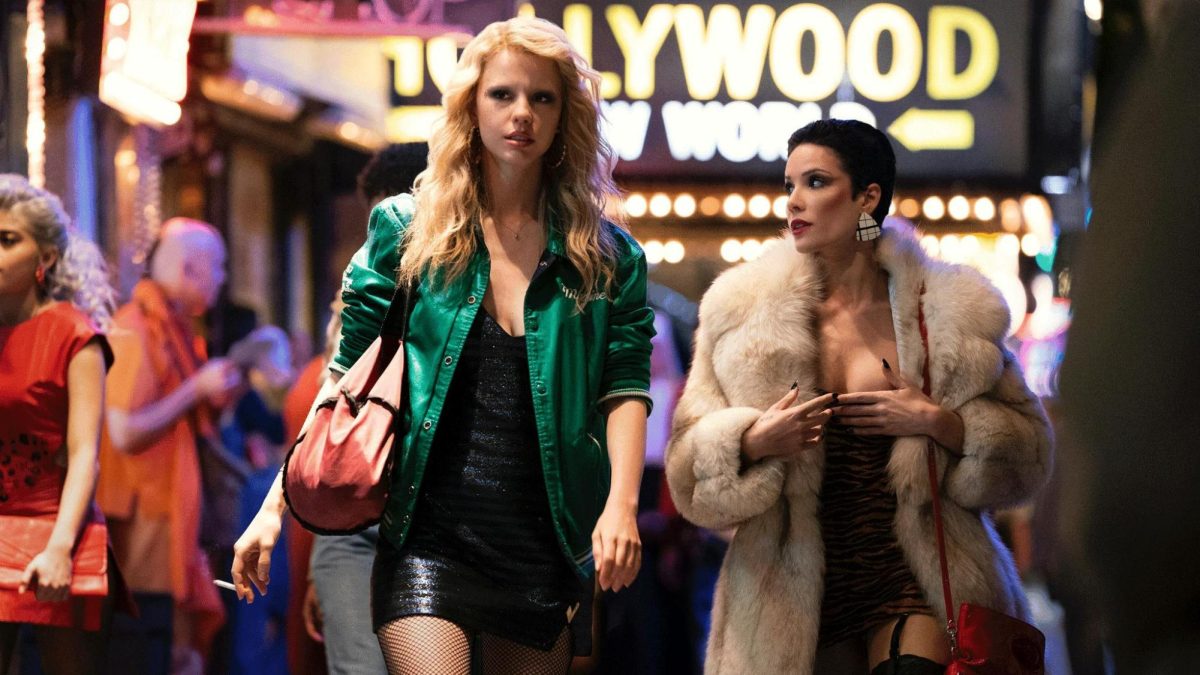
Todd Haynes is no pretender. One of the greatest filmmakers of this age, the director has an acute understanding of the outsider and how it feels to find a place of acceptance. Haynes contextualizes feelings of abandonment, isolation, heartache and compassion, and uses them in a transformative way. Every shot feels as delicately crafted as a Renaissance painting. His new film, the superb “Carol,” epitomizes the desire to break down the overwhelming suffocation of heteronormative society and seize one’s own personhood.
Set in the early 1950s, “Carol” centers on the relationship between two New York women. One, Therese Belivet (played by Rooney Mara), works at a department store, though her true passion lies in photography. The other, the titular Carol (Cate Blanchett), is an older women caught in the middle of a messy divorce brought upon by her queer extramarital affairs.
In the first of many breathless moments, Carol locks eyes with Therese at work, looking to buy a gift for her daughter for Christmas. She “accidentally” leaves her white gloves on Therese’s desk, in the hope that she will return them to her so they can have a second meeting. Disconnected from an environment that refuses to understand them and trapped in relationships with men who know only how to possess, Carol and Therese both long for connection, and their brief encounter signals an opportunity to escape the monotony of their private lives, regardless of their class disparity.
It should come as no surprise that Blanchett is magnificent in the title role. She fully embodies Carol Aird, a woman who has mastered the art of living under implicit codes and every calculated, refined movement of hers feels like a small sequence in an endless ballet. Rarely does she break her poised veneer and express true emotion. Only when pushed to her limit does she allow repressed anxiety and quiet rage to come to a boil.
Yet, despite its title, “Carol” is Therese’s story. We see in Mara’s wide eyes a type of intensity that finds a harmonious blend between naiveté and wisdom. Intelligent and reserved, Mara injects her character with an incandescent mix of curiosity, insecurity and bewilderment. Unlike Carol, who has spent years carefully cultivating a facade of poise in an attempt to disguise her true self, Therese must navigate the new world she has discovered for herself with only a faint beacon in Carol to help guide her. We see in her a desire to keeping moving forward and a worry about what lies up ahead, and Mara plays this note pitch-perfect.
The rest of the cast is lovely as well. Kyle Chandler plays Carol’s soon-to-be ex-husband Harge, and though he could come across as a stereotypical abusive monster, we instead see a three-dimensional portrayal of a man unable to handle the fact that his ideal American suburban life did not transpire the way he hoped, as he lashes out in petty narcissism when he fails to get what he wants.
Meanwhile, in his perfect “aw shucks” glory, Jake Lacy plays a mirror to Harge as Therese’s boyfriend Richard, who expects Therese to marry him because, well, isn’t that what couples do when they’ve been together long enough? Both men fail to grasp that they can’t “have” the women they love and they lapse into impotent, jealous rage at the idea that these women could fall for someone else, much less someone of the same gender.
Shot on lovely Super 16 millimeter film and crafted more meticulously than the most elaborate dollhouse, every facet of “Carol” looks and sounds extraordinary. The costumes glow with a lush sheen. Carter Burwell’s sumptuous music crescendos and pivots at just the right moments. Each image, from velvety furniture to shiny red 20th century automobiles, radiates with detail and affection. Tinted windows and bright snow and fiery lipstick mine our own innate desires. Everything appears so well established, yet so delicate all at once.
In “Carol,” picturesque cinematography visualizes indescribable feelings of love, lust and heartache. Characters can sit next to each other, yet appear miles apart based solely on the way Haynes frames space. We could watch the film without sound and still have an acute understanding of what occurs and enwrap ourselves in those luxurious visuals. Style and substance lock themselves in a beautiful, symbiotic relationship.
Adapted from “The Price of Salt,” a Patricia Highsmith novel, screenwriter Phyllis Nagy drapes dialogue between Therese and Carol with euphemisms and hidden implications – their conversations revolve around minutiae that represent so much more. The way they communicate reflects the world around them: reserved, precise and ready to crumble when pressed hard enough.
Never once does any character utter words like “gay,” “homosexual” or “lesbian,” or any of the less savory words that you can imagine, yet “Carol” captures the closeted experience better than any other film. You want desperately to break free, yet you fear the inhospitable world that awaits once you can’t put the pieces back together again. At the same time, a sense of overwhelming relief washes over you once you reveal to the world what you truly are, in all your naked, imperfect, beautiful glory. Once that happens, you want to find a person to share your new self with.
Thank you, “Carol,” for the way you realized a world far more radiant, transgressive and revelatory than even your exquisitely crafted garments may have suggested.
Nate Taskin can be reached at [email protected].



















